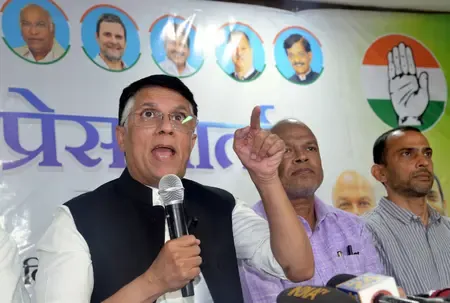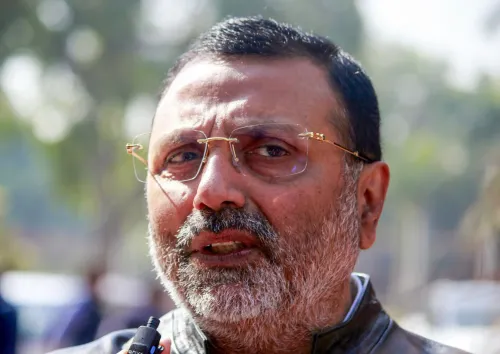Why Did India Abstain from the Gaza Ceasefire Resolution?

Synopsis
Key Takeaways
- India's abstention from the Gaza ceasefire resolution marks a significant shift in foreign policy.
- The decision has drawn sharp criticism from the Congress party.
- Pawan Khera emphasizes the importance of India’s historical support for Palestine.
- India's past actions include recognizing the PLO and supporting Palestinian statehood.
- This abstention raises questions about India's commitment to human rights.
New Delhi, June 14 (NationPress) The Congress party has strongly criticized the Modi administration following India's decision to abstain from a United Nations General Assembly resolution on June 12, which advocated for an immediate ceasefire in Gaza. This act has been termed a “shameful betrayal of our anti-Colonial legacy.”
This represents the fourth instance in three years where India has opted not to vote on a resolution that is critical of Israel's military actions in the region, actions that have led to the deaths of over 55,000 Palestinians, including many women and children.
Congress leader Pawan Khera expressed his disapproval in a pointed post on the social media platform X, labeling the abstention as “an act of staggering moral cowardice – a shameful betrayal of our anti-Colonial legacy and the principles of our own freedom struggle.”
Khera reminded the nation of India's historic support for the Palestinian cause, noting that India was the first non-Arab nation to recognize the Palestine Liberation Organisation (PLO) in 1974, welcomed Yasser Arafat at the 7th NAM Summit in New Delhi in 1983, and officially recognized Palestinian statehood in 1988.
“We advocated for justice not merely as a strategy, but as a principle. However, today, that proud legacy lies in tatters,” Khera remarked.
He also took aim at the Modi government's alteration in policy, highlighting that India had previously voted in favor of a Gaza ceasefire resolution in December 2024, but has now executed “a craven U-turn.” Khera accused the administration of seeking “photo-ops even if they require blood-soaked handshakes.”
“The recent theatrics of a BJP MP in glorifying India's support for Palestine underscore this abstention as a symbol of hypocrisy and this government’s inconsistent foreign policy,” he added.
“When India declines to defend innocent lives abroad, we undermine the moral authority that safeguards Indian lives overseas. The world doesn’t heed the loudest voice; it listens to a nation that speaks with clarity, courage, and conscience. India must never relinquish that voice,” he further stated.
The Ministry of External Affairs has not yet provided a formal explanation for the abstention, but India's ongoing pattern of abstaining from Gaza-related resolutions indicates a significant shift in foreign policy, one that is increasingly cautious of disturbing its growing strategic partnership with Israel.
This abstention occurs at a time when Israeli airstrikes have intensified across Gaza, the West Bank, Lebanon, Syria, Yemen, and even Iran, leading to a humanitarian crisis and widespread international condemnation.
India had supported a UNGA resolution for a ceasefire in December 2024, marking a substantial shift from India's stance just six months ago.









